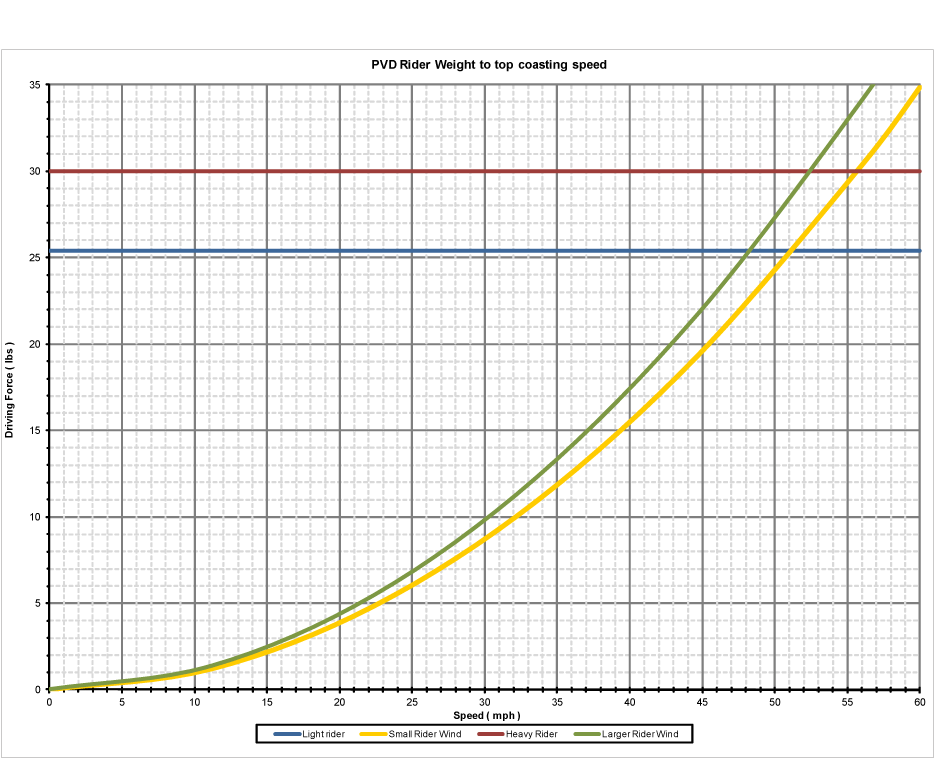This is an apology to Lorri Lee Lown. I was wrong about something and insisted that I was right.
I argued that the increased friction caused by heavier riders and the increased drag due to their larger size overcame the increased downward forces generated from gravitational pull compared to smaller lighter riders making the heavier slower. Doubts arose and I had to check my assumptions (based on experience). I was wrong enough that I couldn’t even push the numbers to fake it. I’m man enough to admit it. It doesn’t happen all the time. This time I was wrong.
This is a simple comparason, given similar parameters, a heavier bike and rider will go faster coasting down a hill than a lighter rider. The assumption is made that this is a road situation, straight ahead without any need for handling skills. It assumes that the tires are identical in every way and that the bikes have no internal (hub) friction.
This comparison is not applicable to offroad situation as the riders skills and tires will radically change the equation.
Using these variables,
Light rider mass – 160 lbs
Light bike mass – 16 lbs
Small rider frontal area – 0.40 m^2
Heavy rider mass – 190 lbs
Heavy bike mass – 18 lbs
Larger rider frontal area – 0.42 m^2
System Cd – 0.88
Air density – 1.225 kg/(m^3)
Gravity – 9.8 m/(s^2)
Tire rolling resistance – 0.004
Hill grade – 15% (8.53 degrees)
Here’s the equation for the aerodynamic drag forces:

The gravitational pull is a vector component of the forces on the hill while the tire drag uses the normal component:

Note that the when the pulling force of gravity crosses the resistive force of air, the velocity of the rider will fix. Obviously some real testing could make this a very useful graph.
The thing is, the lighter system is always really going to be faster in practice. It takes far less effort to quickly accelerate back up to speed after needed braking and the system is far easier to control as handling is needed. I would always give the benefit to the lighter rider over the heavier rider but in a simple coast in an idealized, yes, the heavier system wins.

